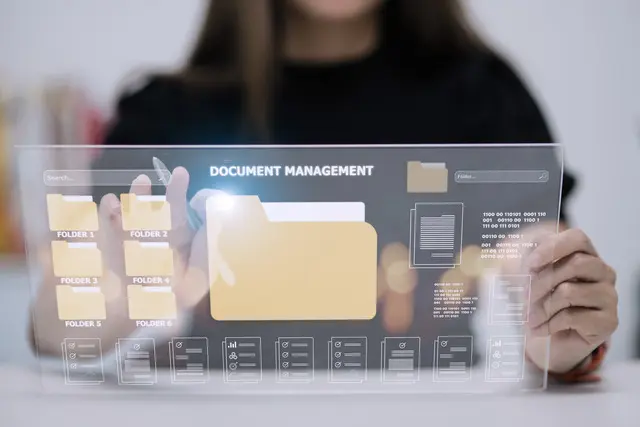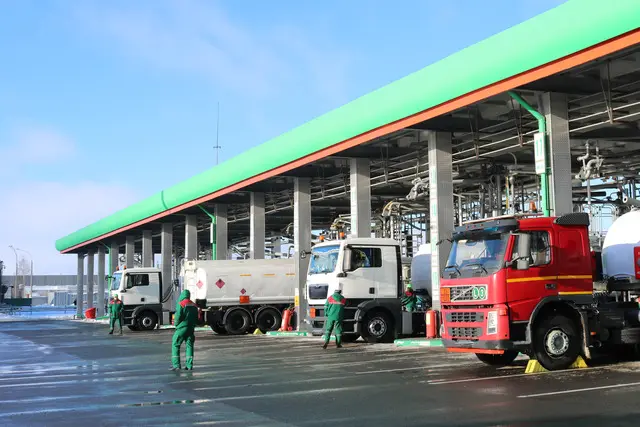Freight Quoting Automation: Empowering the Supply Chain with Python and AI
In the fast-paced world of supply chain management, freight quoting automation has emerged as a game-changer. The traditional process of manually calculating shipping costs and generating quotes is often time-consuming, error-prone, and a barrier to efficiency.
Python-based automation offers a powerful solution to these challenges. By leveraging the versatility of Python and the scalability of cloud-based platforms, businesses can streamline their freight quoting processes, empowering them to:
- Slash turnaround times and improve responsiveness to customer inquiries
- Eliminate manual errors and ensure accuracy in calculations
- Gain real-time visibility into shipping costs and optimize pricing strategies
Harnessing the power of AI, these automated systems can analyze historical data, identify patterns, and predict future shipping trends. This enables businesses to make informed decisions, reduce costs, and enhance customer satisfaction.
Freight quoting automation is not just a technological upgrade; it’s a strategic investment in the future of your supply chain. By embracing this transformative technology, businesses can unlock unprecedented levels of efficiency, accuracy, and competitiveness.

Python, AI, and the Cloud: The Cornerstones of Freight Quoting Automation
Python: The Powerhouse of Unattended and Attended Bots
Python’s versatility and ease of use make it the ideal language for developing both unattended and attended bots for freight quoting automation.
Unattended bots can be programmed to autonomously monitor incoming quote requests, extract relevant data, calculate shipping costs, and generate quotes without human intervention. This eliminates the need for manual data entry and reduces the risk of errors.
Attended bots can assist human agents in processing quote requests. They can provide real-time information, automate repetitive tasks, and flag potential issues. This allows agents to focus on more complex tasks and provide better customer service.
Cloud Platforms: The Orchestrators of Automation
Cloud platforms offer a comprehensive suite of features and capabilities that make them far more powerful than traditional RPA/workflow tools. These platforms provide:
- Scalability: Cloud-based automation can be easily scaled up or down to meet changing business demands.
- Reliability: Cloud platforms offer high levels of uptime and redundancy, ensuring that your automation processes are always running smoothly.
- Security: Cloud providers implement robust security measures to protect your data and applications.
AI: Enhancing Accuracy and Handling Edge Cases
AI techniques can significantly improve the accuracy and efficiency of freight quoting automation. For example:
- Image recognition: AI algorithms can be used to extract data from images of shipping documents, eliminating the need for manual data entry.
- Natural language processing (NLP): NLP can be used to analyze customer inquiries and extract key information, such as the type of shipment, origin, and destination.
- Generative AI: Generative AI models can be used to generate accurate and personalized freight quotes based on historical data and market trends.
By leveraging the power of Python, AI, and cloud platforms, businesses can create robust and scalable freight quoting automation solutions that streamline their supply chain processes, reduce costs, and improve customer satisfaction.

Building the Freight Quoting Automation: A Step-by-Step Guide
The freight quoting automation process can be broken down into the following sub-processes:
1. Data Extraction
Python: Use Python libraries like OpenCV and PyPDF2 to extract data from shipping documents, such as weight, dimensions, origin, and destination.
Cloud: Leverage cloud-based OCR services to convert images of shipping documents into text, which can then be parsed by Python scripts.
2. Cost Calculation
Python: Develop Python functions to calculate shipping costs based on factors such as weight, dimensions, origin, and destination. Integrate with shipping carrier APIs to get real-time rates.
Cloud: Utilize cloud-based cost calculation services to perform complex calculations and optimize pricing strategies.
3. Quote Generation
Python: Create Python templates to generate freight quotes based on the extracted data and calculated costs. Customize quotes with company branding and additional information.
Cloud: Use cloud-based document generation services to create professional-looking quotes in various formats (e.g., PDF, Word).
4. Quote Delivery
Python: Send quotes via email or other communication channels using Python’s smtplib library or third-party email services.
Cloud: Integrate with cloud-based messaging services to deliver quotes securely and reliably.
5. Data Security and Compliance
Python: Implement encryption and access controls in Python scripts to protect sensitive data. Comply with industry regulations and standards (e.g., HIPAA, GDPR).
Cloud: Utilize cloud platforms’ built-in security features and compliance certifications to ensure data protection and regulatory adherence.
Advantages of Python over No-Code RPA/Workflow Tools
- Flexibility: Python allows for greater customization and control over the automation process compared to no-code tools.
- Scalability: Python scripts can be easily scaled to handle large volumes of quote requests.
- Integration: Python can be integrated with a wide range of third-party services and APIs, providing greater flexibility and functionality.
Algorythum’s Approach: Beyond Off-the-Shelf Solutions
Algorythum takes a different approach to freight quoting automation because we understand the limitations of off-the-shelf RPA/workflow tools. These tools often lack the flexibility, scalability, and integration capabilities required for complex supply chain processes.
Our Python-based approach allows us to tailor freight quoting automation solutions to the specific needs of our clients. We leverage the power of Python, AI, and cloud platforms to deliver robust, scalable, and secure automation solutions that drive efficiency, reduce costs, and improve customer satisfaction.

The Future of Freight Quoting Automation
The future of freight quoting automation is bright, with emerging technologies offering exciting possibilities to further enhance the proposed solution.
AI techniques such as machine learning and deep learning can be used to:
- Predict future shipping trends and optimize pricing strategies
- Identify and resolve potential issues before they impact operations
- Provide personalized recommendations to customers based on their shipping history and preferences
Blockchain technology can be integrated to:
- Create a secure and transparent record of all freight transactions
- Streamline the process of tracking and managing shipments
- Facilitate collaboration between different stakeholders in the supply chain
Quantum computing, with its unparalleled processing power, can be harnessed to:
- Solve complex optimization problems and find the most efficient shipping routes
- Simulate different shipping scenarios and predict their impact on costs and delivery times
- Develop new AI algorithms that can learn from vast amounts of data and make highly accurate predictions
To stay at the forefront of freight quoting automation, we encourage readers to subscribe to our blog for the latest industry-specific automation insights. Contact our team today to schedule a free feasibility assessment and cost estimate for your custom freight quoting automation requirements. Together, we can unlock the full potential of automation and revolutionize your supply chain operations.

Algorythum – Your Partner in Automations and Beyond
At Algorythum, we specialize in crafting custom RPA solutions with Python, specifically tailored to your industry. We break free from the limitations of off-the-shelf tools, offering:
- A team of Automation & DevSecOps Experts: Deeply experienced in building scalable and efficient automation solutions for various businesses in all industries.
- Reduced Automation Maintenance Costs: Our code is clear, maintainable, and minimizes future upkeep expenses (up to 90% reduction compared to platforms).
- Future-Proof Solutions: You own the code, ensuring flexibility and adaptability as your processes and regulations evolve.









